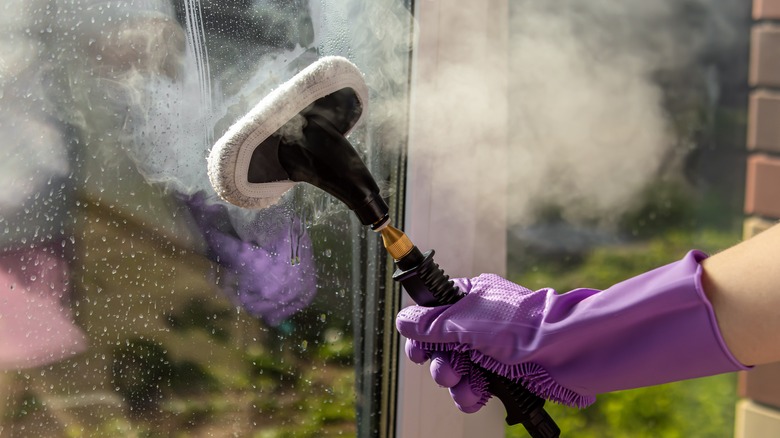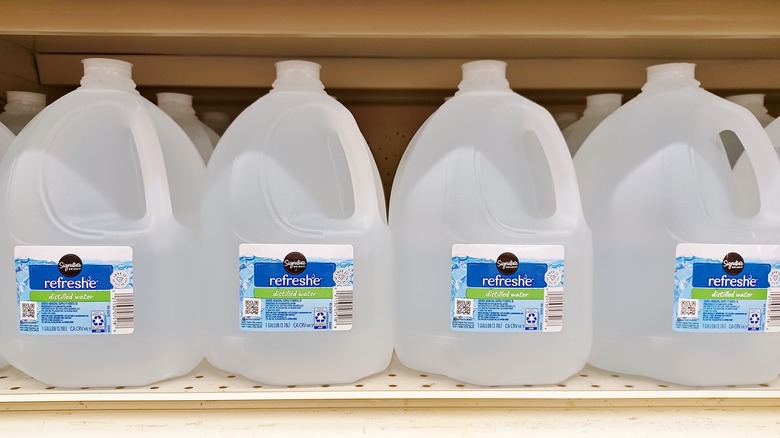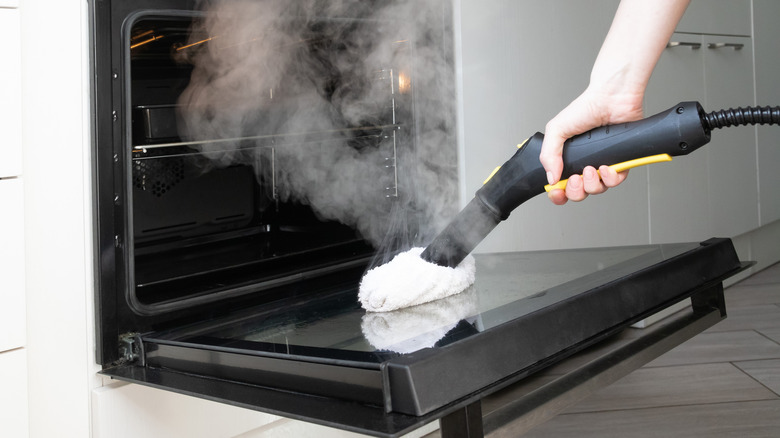The Water Rule You Have To Follow When Steam Cleaning Glass
Steam cleaning has become a popular choice among people looking for an eco-friendly way to clean the glass in their home. Whether you're tackling windows, mirrors, or shower doors, a steam cleaner can dissolve grime using only heat and water, no harsh chemicals needed. But not all water is suitable for the job. The most important rule when steam cleaning glass is to use distilled water — not tap, not filtered, and not softened. This simple switch can make a noticeable difference in the quality and clarity of your results.
While tap water may be safe to drink, it often contains minerals harmful to appliances, like calcium and magnesium. These don't vanish when heated in a steam cleaner. Instead, the minerals build up inside the steamer itself, clogging the unit and diminishing performance over time. Meanwhile, the glass remains dirty with its own mineral buildup, resulting in streaks, cloudy residue, and unsightly water stains.
The advantages of distilled water
Distilled water solves the problems of mineral buildup and streaky residue in one step. It's created by boiling water and then condensing the steam back into liquid, which strips away minerals and other impurities. When used in a steam cleaner, it generates pure water vapor that evaporates cleanly, leaving behind no film, dull residue, or streaks on glass. The result is crystal clear with little to no follow-up wiping — efficiency at its finest.
But the benefits aren't just visual. Steam cleaners are sensitive appliances with heating elements, boilers, and steam hoses. Mineral buildup from tap water can corrode these parts, reducing pressure and causing early failure. This also causes longer heating times and reduced steam. That's why it's best to use distilled water to protect these components and ensure consistent output from your steam cleaner. You'll reduce maintenance, prevent unexpected breakdowns, and preserve your steam cleaner's life.
Expanded cleaning to floors and appliances
Using distilled water isn't just essential for glass cleaning. It also works for other things you can clean with a steamer, like your floors and appliances. Steam mops are highly effective at deep cleaning hard surfaces without chemical cleaners. The high-temperature steam loosens grease and grime and kills bacteria, along with reducing allergens and viruses. Using tap water will create the same problems for your floor and steam mop, while distilled water avoids these issues and ensures that floors dry streak-free by maintaining the life of the appliance.
The inside of home appliances, such as your oven (some come with their own steam cleaning function), benefits from the deep penetration of distilled water steam that tackles food residue. Avoiding tap water means these household staples remain in good working condition longer without mineral buildup. This means your cleaning routine becomes simpler and smarter, and you can go tackle dingy upholstery with your steamer next.


